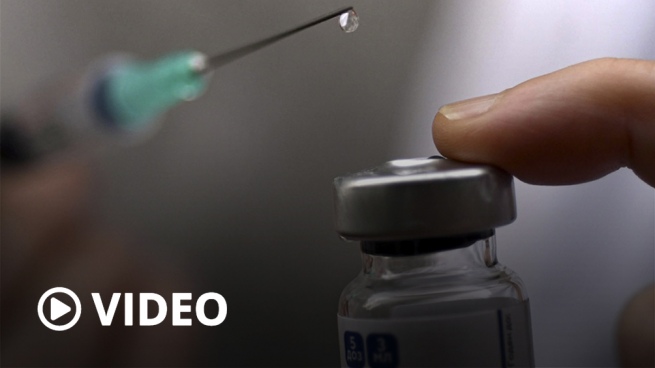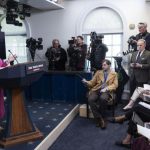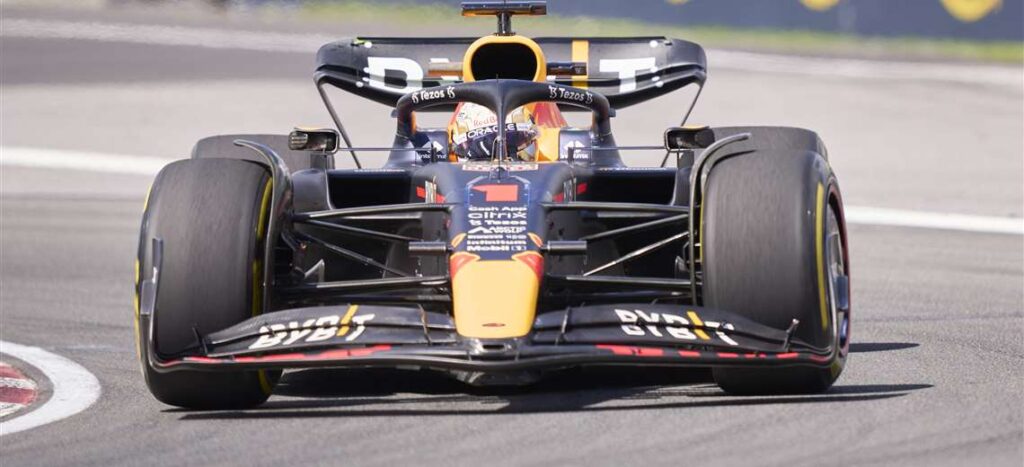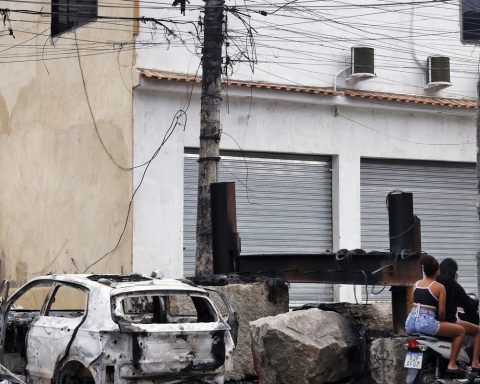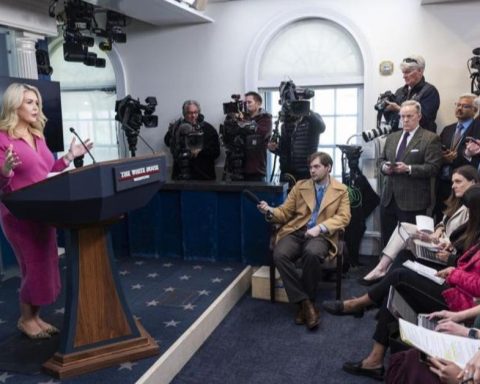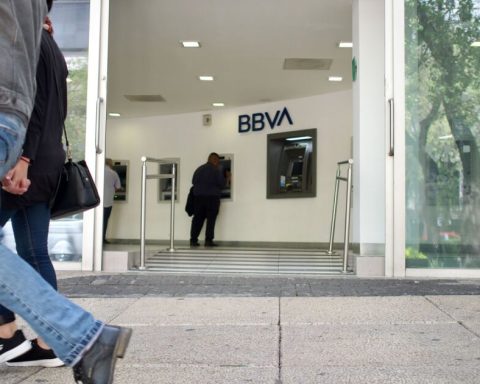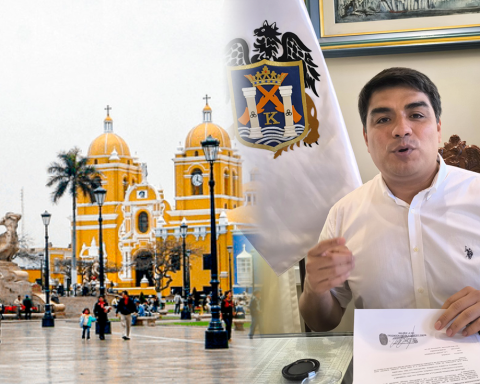The member countries of the World Trade Organization (WTO) agreed this Friday to temporarily lift intellectual property rights on anticovid vaccines, after almost 20 months of debate, although NGOs criticized its limited scope for not including tests and treatments, not benefit everyone and establish a five-year period.
The 164 countries reached this “unprecedented” pact, said the organization’s director, the Nigerian Ngozi Okonjo-Iweala, announcing the formal adoption of the pacts that were discussed during the XII Ministerial Conference that ended early Friday in Geneva ( Switzerland), almost 36 hours later than originally planned in the agenda.
The consensus resolution allows developing countries to manufacture coronavirus vaccines that are already being administered massively for five years without paying for patents.
This includes messenger RNA technology, present in laboratory immunizers Pfizer Y modern, a scientific novelty that propelled treatments against the pandemic. Countries that so wish may use this method without having to obtain authorization from the laboratory that discovered it.
However, one of the criticisms is that the text does not oblige the companies that have the patents to share their technology or the data from their clinical trials, which will remain trade secrets.
In addition, several NGOs reject the five-year period for the exception, the limitation it imposes on exporting vaccines to other countries through compulsory licenses and that the agreement has not reached the tests and other treatments used to detect and combat Covid-19 .
“We are disappointed that the patent suspension proposed in October 2020, which would have covered all medical tools for all countries, could not be achieved, even during a pandemic that caused more than 15 million deaths”The president of Doctors Without Borders, Christos Christou, said in a statement.
The director of the NGO thus made reference to the original project presented on October 2, 2020 by India and South Africa in the WTO, much more comprehensive in the exemptions.
that initiative, backed by more than 100 countries, including Argentina, which accompanied him as a co-sponsordemanded to lift for “at least three years” the intellectual property rights on immunizers, treatments and diagnoses against Covid-19.
“Could Have Been Done Earlier”
Argentine infectologists considered today that the agreement of the member countries of the World Trade Organization (WTO) for the temporary lifting of intellectual property rights on coronavirus vaccines is “a positive fact”, but that it would have been better “to do it before”.
The resolution allows developing countries to manufacture vaccines against Covid-19 for five years without paying for patents, and includes messenger RNA technology, present in immunizers from Pfizer and Moderna laboratories.
However, one of the criticisms of the agreement is that it does not force the companies that have the patents to share their technology or the information from their clinical trials, which will remain secret.
In addition, the agreement does not include tests or treatments used to detect and combat the coronavirus.
Jorge Geffner, Conicet researcher and professor of Immunology at the UBA Faculty of Medicine, told Télam that the initiative is “a positive development”, but that the release of patents, if not accompanied by full access to details technological and methodological, it is a liberation “with a very weak leg”.
“If there is no technology transfer, it is very difficult for this release to become effective because any laboratory or university that wants to specifically carry out production is going to have to invest a lot of time and resources in the development of that technology, which the big companies refuse. to transfer”, added the specialist.
Geffner also considered that “the correct thing would have been to do it before, any pronouncement in that sense is good, but the truth is that it seems rather rhetorical, I don’t know what consequences it will have.”
The infectologist explained that governments should accompany the initiative to release patents together with the release of technology.
“Vaccination strategies, who has access or not, have to be determined by the needs of people and not by the economic interests of companies in the scenario of a pandemic,” he said.
For his part, Luis Cámera, a clinician and adviser to the national government, agreed with Geffner that the measure is somewhat “late.”
“These agreements could have been made a long time before, not when – unfortunately – between 15 and 20 million people have already died from the pandemic,” he said.
Cámera believes, despite this, that it is “important” and “it will help many people” the fact that a significant reduction in price can be generated through the release of patents, adding that technology transfer would empower countries to “be able to produce their own products without being intellectually dependent on more powerful countries.”
Martín Hojman, infectious disease doctor at the Argentine Society of Infectious Diseases (SADI), celebrated “any measure aimed at universal and free access to health.”
“In this case, during a pandemic there were several attempts to obtain the lifting of patents on vaccines, but also on diagnostic methods and treatments, but this was not achieved. However, this is achieved, which is a five-year step forward by allowing vaccines are manufactured without paying the patents, although it does not oblige companies to share their data,” he stressed.
The countries of the European Union (EU), Switzerland and the United Kingdom, headquarters of large pharmaceutical companies, were its main opponents, and presented their own text that called for the creation of a multilateral agreement that includes “affordable prices” of vaccines for the countries that most need it and facilitate “the use of compulsory licenses”, which would allow more laboratories to develop generic drugs in exchange for the payment of a royalty to those who own the patents.
This situation stopped any kind of progress in the discussion, until last March the EU, the United States, India and South Africa managed to raise a common initiative that limited the lifting of patents only to vaccines, establishing a period of three to five years of duration and established that it will only benefit nations that have manufactured less than 10% of world exports of inoculants in 2021.

With this last text as a base, it was reached in the WTO the agreement that comes at a time when, according to the World Health Organization (WHO), 60% of the world population received two doses of anticovid vaccine, but with a very uneven picture: in Nigeria only 8% of its inhabitants, less than 5% in Cameroon and 17% in Libya, for example.
The final agreement “fails to offer an effective solution” to the access problems that could be seen in the current pandemic, “and sets a negative precedent for future health crises,” criticized the MSF president.
On the contrary, the Secretary of Commerce of the United States, Katherine Tai, assured that the pact reached in the WTO “will facilitate the global health recovery” after the pandemic.
The result of the negotiations “shows that we can work together to make the WTO more relevant to people’s needs”, after the organization managed to “react quickly” in the current health crisis, Tai stressed.
The final text also did not satisfy the International Federation of Pharmaceutical Manufacturers and Associations (Ifpma), the main lobby in the sector, assuring that “it sends the wrong message to researchers and innovators” by suggesting that intellectual property is a barrier to the response to the pandemic.
“The problem from the beginning was distribution. Numerous producing countries blocked exports in the name of sanitary sovereignty”highlighted the president of the organization, Thomas Cueni.

